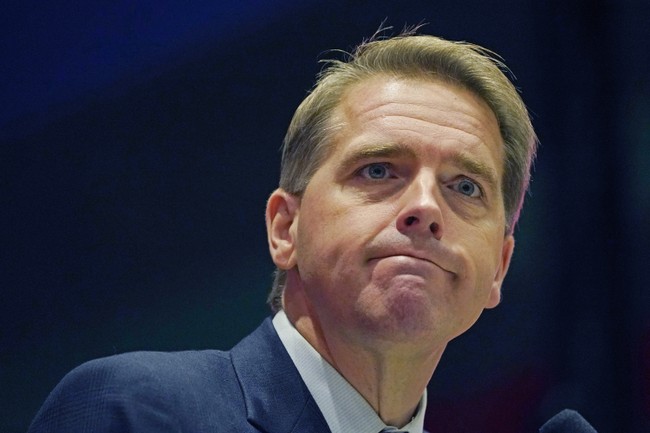We support our Publishers and Content Creators. You can view this story on their website by CLICKING HERE.

CNN’s Scott Jennings delivered a scathing critique of the American left during a recent panel Monday evening, cutting through progressive talking points with sharp observations about leftists’ inability to differentiate between good and bad people. The discussion centered on Daniel Penny, the Marine veteran who intervened on a New York subway to stop Jordan Neely, who was threatening passengers on the train. While many see Penny as a hero, the left has vilified him, adding yet another layer of political polarization to the case.
Advertisement
CNN anchor Audie Cornish framed the discussion by asking Jennings to explain why some lawmakers are celebrating Penny as a hero.
She asked, “When I hear lawmakers hailing Penny as a hero, as a good Samaritan, really being promoted, can you help me understand the thinking? We started at the top of the show talking about the killer of the UnitedHealthcare CEO being hailed in similar terms.”
Jennings didn’t hold back and channeled his inner Karl Rove to explain that the left’s moral compass is hopelessly broken. He remarked, “If you’re on the American left tonight, here’s my chart. The good guys today — Daniel Penny. The bad guys — Luigi Mangione.”
The two situations couldn’t be more different. While Cornish implied that there’s no real distinction between hailing Daniel Penny as a hero and Luigi Mangione receiving similar praise, the comparison falls apart under scrutiny. Penny acted to protect subway passengers from a threatening individual, stepping in when others were at risk. In contrast, Mangione coldly executed a man on the street who posed no danger to anyone. Trying to equate these actions is both misleading and absurd.
Recommended: The Mainstream Media FINALLY Admits Obamacare Is a Failure
Advertisement
But Cornish pressed further, demanding to know which victims qualify as good or bad. Jennings maintained his focus, stating that people on the left “can’t seem to tell the difference between the good guys and the bad guys.” Despite repeated interruptions, he underscored that the progressive narrative often flips reality on its head, elevating criminals while demonizing those who take decisive action to protect others.
Cornish then shifted to the question of whether Penny deserves the Congressional Gold Medal, which Rep. Eli Crane (R-Ariz.) is looking to make happen. Jennings doubled down on his support for Penny, saying, “I think he ought to get a medal. I think they ought to build a statue to this guy in New York City.”
Solomon Jones, a columnist for the Philadelphia Inquirer, predictably injected race into the conversation, arguing that racial bias shapes outcomes in cases like Penny’s.
He claimed, “Race plays a role in this, right? Statistics show that when people kill people who are white, they tend to get harsher sentences, especially if they’re people of color.” Jennings quickly dismantled this narrative, pointing to the case of Jordan Williams, a black man who killed another individual on a New York subway in self-defense. Jennings highlighted that the grand jury dismissed Williams’ case entirely, exposing the flaws in Jones’ race-based argument.
Advertisement
Made a chart for the American Left last night on @cnn to help them tell the good guys from the bad, since it seems so many can’t locate the truth about the Daniel Penny and Luigi Mangione cases. pic.twitter.com/xRzJuhcAmA
— Scott Jennings (@ScottJenningsKY) December 10, 2024
The contrast between Jennings’ clarity and the left’s obsession with identity politics couldn’t have been starker. Democrats don’t see right and wrong; they see race, and that informs how they see everything.

 Conservative
Conservative  Search
Search Trending
Trending Current News
Current News 







